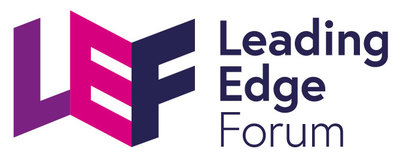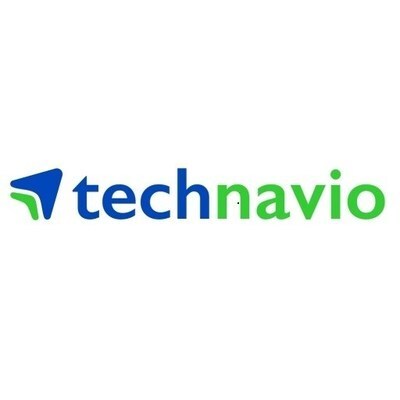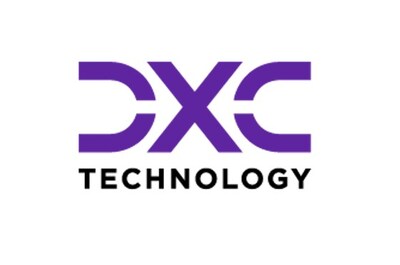Advanced Automation Is Needed to Address Society’s Most Pressing Challenges, New Report by ITIF and LEF Argues
Press Releases
Nov 12, 2019
LONDON and WASHINGTON, Nov. 12, 2019 /PRNewswire/ — Contrary to common belief, enterprise automation is not a cause for alarm, but a societal imperative. Modern nations will need all the productivity they can get to address today’s ever-more-resource-constrained challenges. This is the main message of a new research report produced jointly by the Information Technology and Innovation Foundation (ITIF), the world’s top-ranked think tank for science and technology policy, and the Leading Edge Forum, the research arm of DXC Technology, a leading global IT services provider.

The report argues that innovations such as artificial intelligence, smart cities and grids, digital platforms, shared ledgers, precision agriculture and medicine, robotics, and advanced authentication and security are needed to overcome today’s stagnant public and private sector productivity. This productivity booster shot is the most direct way to lift wages and living standards, re-shore work back from low-cost nations, affordably support aging populations, reduce debt-to-GDP levels, and free-up human capital and other resources for important new societal tasks.
“It’s unfortunate that idea of accelerating automation stirs such deep fears on both the left and the right, because the truth is that advanced economies like the United States and Europe will need to automate as much as possible to address the many challenges they face,” said ITIF President Rob Atkinson, co-author of the report. “What’s more, fears about automation making humans obsolete are once again misplaced. The bigger and more complex economies become, the more capacity and demand they create. If society is to meet its most pressing 21st-century challenges, massive numbers of people will need to be re-skilled, redeployed, and fully engaged.”
“While there will be no quick fixes, over the next decade, modern societies will need to steadily transform their energy, transportation, agricultural and other core systems,” according to report co-author and Leading Edge Forum research fellow, David Moschella. “They will also face massive competitive, environmental, demographic, financial and life-long learning pressures. And this doesn’t even count the many new opportunities and demands that the Information Age will surely create. There is so much work to be done that without greatly enhanced public and private sector productivity, labor, skill and resource shortages seem inevitable.”
As the report explains, many of today’s most promising digital initiatives can only be brought to fruition by large organizations and the sectors they serve, and this will require complex changes in the way that both public and private sector enterprises operate. To overcome today’s inertia and accelerate change throughout the 2020s, the report recommends that governments support the automation imperative in three main ways:
- Recognize that public sector leadership will be essential in establishing important new societal platforms in areas such as: health care records, smart cities and grids; reliable identification and authentication; efficient payments and taxation; coherent satellite and drone management; trusted shared ledgers and open data; more innovative defense and law enforcement; and the associated security, oversight, and standards-setting that comes with these important initiatives;
- Visibly support the transformation of traditional enterprises, including government enterprises, and their associated industries by ensuring that laws, rules, regulations, incentives, liabilities, political attitudes, and worker skills do not act as barriers to the needed changes;
- Look around the world to see where innovative societal platforms are emerging and readily embrace these learnings to step-up the pace of their own automation. Smaller nations will often be important societal platform leaders.
About LEF
Leading Edge Forum is one of the world’s leading cross-industry think-tanks and is dedicated to helping clients reimagine their organisations and leadership for a tech-driven future. It has been evaluating major digital technology developments and shifts for over 30 years – and delivering insights on how these will redefine industries, organisations and the individuals that work within them. Learn more at https://www.leadingedgeforum.com
About ITIF
The Information Technology and Innovation Foundation (ITIF) is an independent, nonpartisan research and educational institute focusing on the intersection of technological innovation and public policy. Recognized as the world’s leading science and technology think tank, ITIF’s mission is to formulate and promote policy solutions that accelerate innovation and boost productivity to spur growth, opportunity, and progress. Learn more at itif.org.
Media Contacts
LEF Contact
Gareth Scragg
gareth.scragg@leadingedgeforum.com
+44-7710-182613
ITIF Contact
Lindsay Bednar
press@itif.org
+1-202-626-5744
![]() View original content:http://www.prnewswire.com/news-releases/advanced-automation-is-needed-to-address-societys-most-pressing-challenges-new-report-by-itif-and-lef-argues-300955441.html
View original content:http://www.prnewswire.com/news-releases/advanced-automation-is-needed-to-address-societys-most-pressing-challenges-new-report-by-itif-and-lef-argues-300955441.html
SOURCE Leading Edge Forum (LEF)




